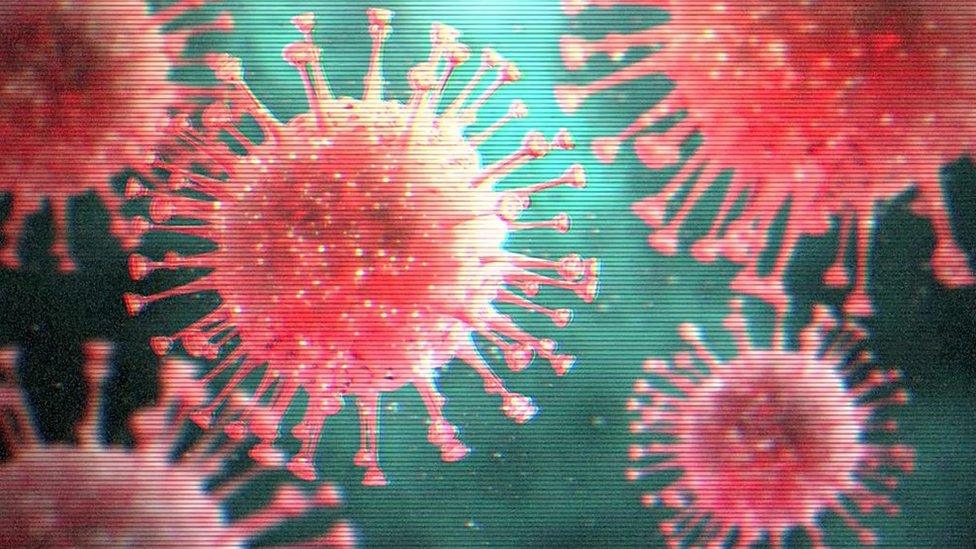Coronavirus to be tracked using its genetic code
- Published

Scientists are to track the spread of the coronavirus in the UK by using clues in its genetic code.
Analysing samples collected from patients will also reveal whether the virus is mutating into new strains.
There have been more than 5,600 laboratory-confirmed cases in the UK so far, but the true figure is far, far higher.
The government said the £20m project would improve understanding of the pandemic and "ultimately save lives".
Genetic blueprint
The genetic code is the blueprint for building a virus.
However, that blueprint subtly changes as the virus mutates.
Sequencing the coronavirus's genetic code from different patients allows researchers to build up a picture of how the virus is spreading.
For example, a group of patients with nearly identical coronaviruses infecting them may all be part of the same cluster.
The same techniques, used at a hospital in Cambridge, were able to identify the source of an outbreak of the superbug MRSA.
"This virus is one of the biggest threats our nation has faced in recent times," said Prof Sharon Peacock, the director of the national infection service at Public Health England.
"Harnessing innovative genome technologies will help us tease apart the complex picture of coronavirus spread in the UK."

A SIMPLE GUIDE: What are the symptoms?
AVOIDING CONTACT: Should I self-isolate?
LOOK-UP TOOL: Check cases in your area
MAPS AND CHARTS: Visual guide to the outbreak

Most of the time the coronavirus mutations do not mean anything, but this is also a virus that has only just made the jump from animals to humans.
The virus, named officially Sars-CoV-2, was first detected in Wuhan, China, in December 2019.
Since then, the disease it causes, Covid-19, has killed more than 14,000 people around the world.
However, the virus may still be adapting as part of its shift to infecting people and interacting with human immune systems.
It is something scientists will want to keep an eye on as it could affect how the virus is treated in the future.
Viruses will accumulate mutations which allow them, for example, to evade immune responses.
There's lots of information about this for viruses like HIV, hepatitis C and influenza, said Prof Paul Klenerman, from the University of Oxford, who will be part of the project.
He added: "If there is variability in key parts of the virus, it would be incredibly important for vaccine design."
The project - called the Covid-19 Genomics UK Consortium - is a collaboration between the NHS, public health agencies and the Wellcome Sanger Institute universities.
Business Secretary Alok Sharma said: "This new consortium will bring together the UK's brightest and best scientists to build our understanding of this pandemic, tackle the disease and ultimately, save lives."
Samples from patients with confirmed cases of Covid-19 will be sent to a sequencing centres in Belfast, Birmingham, Cambridge, Cardiff, Edinburgh, Exeter, Glasgow, Liverpool, London, Norwich, Nottingham, Oxford and Sheffield.
- Published22 March 2020

- Published16 April 2020
- Published22 March 2020

- Published22 March 2020
